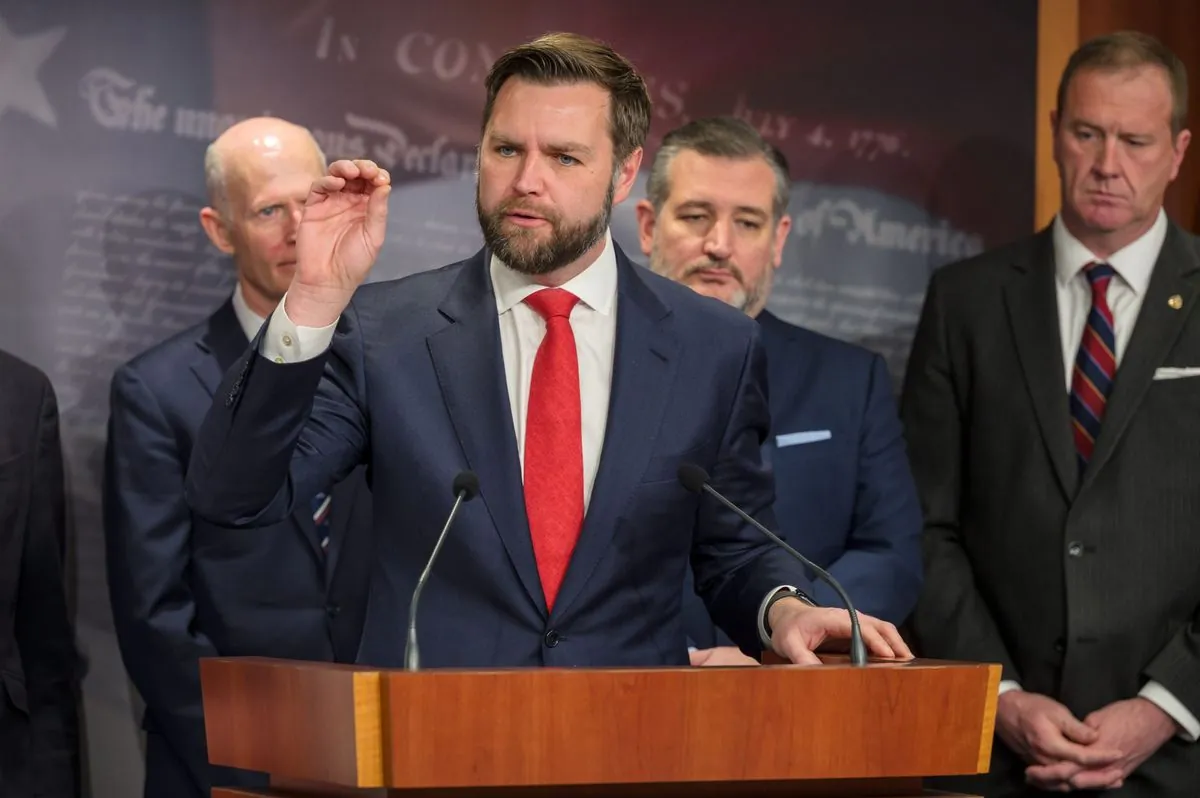JD Vance, the Republican vice-presidential nominee and senator from Ohio, has recently outlined a potential approach to ending the Russia-Ukraine conflict under a hypothetical Trump administration. This proposal marks a significant departure from the current Biden administration's policy.
The centerpiece of Vance's plan involves establishing a demilitarized zone along the current line of demarcation between Russian and Ukrainian forces. This concept draws parallels to other historical demilitarized zones, such as the one between North and South Korea. Vance suggests that this zone would be "heavily fortified" to prevent future Russian incursions.
Under this proposal, Ukraine would maintain its independence in exchange for a guarantee of neutrality, effectively precluding its membership in NATO or other allied institutions. This stance contrasts sharply with NATO's current position, which has pledged to include Ukraine in the alliance and set it on a path to membership.
Vance's comments come in the context of former president Donald Trump's claims that he could swiftly resolve the conflict if re-elected. However, Trump has been reluctant to divulge specific details, arguing that doing so would compromise his negotiating position.
The proposed approach has sparked debate about the nature of the conflict and its global significance. Vance controversially stated that it was "fake" and "wrong" to consider the war "the great humanitarian mission of our time," challenging the narrative of a clear-cut battle between good and evil.
This perspective stands in stark contrast to the current U.S. policy, which, along with European allies, has focused on providing military and other assistance to help Ukraine repel Russian aggression. The Biden administration, represented by Vice President Kamala Harris, has rejected Russian proposals that would require Ukraine to cede territory or abandon its NATO aspirations.
"He is not calling for negotiations. He is calling for surrender."
The conflict, which began with Russia's invasion in February 2022, has resulted in Russia controlling approximately 20% of Ukraine's territory, including Crimea, which was illegally annexed in 2014. This situation underscores the complexity of any potential peace negotiations.
Vance's proposal has reignited discussions about the level of U.S. financial support for Ukraine. While some Republican lawmakers strongly support Ukraine, others have expressed reluctance to continue providing federal funding, arguing that domestic issues should take priority.
It's worth noting that, contrary to some claims, European nations have collectively allocated more funds to Ukraine than the United States, according to data from the Kiel Institute for the World Economy as of June 30, 2023. This fact challenges the narrative that the U.S. has been bearing a disproportionate financial burden in supporting Ukraine.
The proposed peace plan stands in stark contrast to the 10-point plan presented by Ukrainian President Volodymyr Zelensky to the United Nations in September 2022. Zelensky's plan called for a complete Russian withdrawal and restoration of pre-2014 borders, as well as an international tribunal to prosecute Russian war crimes.
As the conflict continues and the 2024 U.S. presidential election approaches, the debate over the best approach to resolving the Russia-Ukraine war is likely to intensify, with significant implications for international relations and global security.
